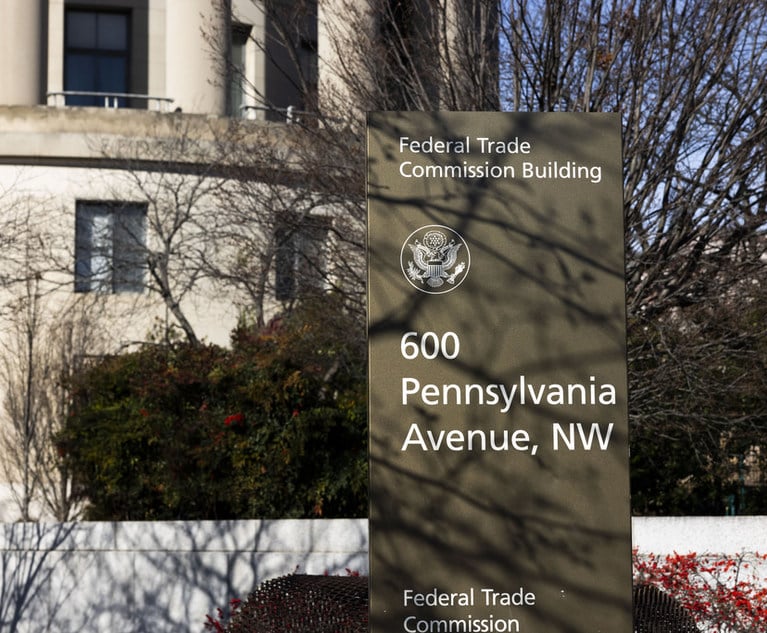Newly elected Florida Gov. Rick Scott's theme for his campaignwas "Let's get to work!" He is correct. It is time for Florida'spolicy makers to get to work rebuilding the economy, includinginsurance markets, one of the critical components. The next severalyears must be focused on growing the economy, which translates intolowering the unemployment rate and putting Floridians back to work.Florida must assist the business community that is here now to growand expand, and the state must compete with the other 49 states toattract new employers.
|Florida Insurance Council (FIC) members are ready to do theirpart. To grow the economy, billions of dollars of new insurancecapital will be needed. Insurance is the oil that allows Florida'seconomic engine to function and capital is the lifeblood ofinsurance.
|We must examine current insurance laws and regulations and ask,"What barriers exist that obstruct insurance capital coming toFlorida?" These barriers must be removed. We also must ask, "Whatincentives can Florida establish that send a clear signal to theinsurance community throughout the country and world that capitalis now welcome?" These incentives must be established.
|Major Challenges Ahead
|Homeowners' insurance has been getting much of the attention,but every insurance market is part of the foundation for oureconomy and, unfortunately, we have major challenges across theboard.
|In health insurance, Florida, like every state, must implementCongress' Affordable Care Act (ACA). To attract health insurers toFlorida and encourage increased business by companies already here,we should adopt only those elements absolutely required to beimplemented in 2011. This seems an especially appropriate strategysince the new Congress is likely to make significant changes to thefederal health-care law.
|Life insurers who provide billions of dollars in coverage in ourstate have a major challenge. FIC and the American Council for LifeInsurance are proposing legislation to help deter a growing butabusive practice called stranger-originated life insurance (STOLI).In STOLI schemes, investors entice seniors to take out policies andthen profit when they die. In effect, STOLI promotes wagering onhuman life. Also, STOLI threatens to expose consumers to unexpectedtaxes, loss of privacy, and inability to obtain life insurance inthe future.
|Auto insurance rates in Florida are among the highest in thecountry and are continuing to rise, while insurers are seeing hugelosses despite the high rates. The major factor is fraud, includingstaged accidents and false PIP claims. For the second straightyear, FIC has aligned with a coalition of outstanding consumeradvocates to push an insurance fraud package, including moreeffective licensing of PIP clinics.
|Property insurance is in crisis mode even though Floridasurvived the 2010 hurricane season storm-free and has not had ahurricane landfall since Wilma in 2005.
|Non-catastrophe cost drivers are major factors in preventinginsurers from attracting the capital we desperately need andbuilding appropriate surplus in the years when there are nohurricanes. The most significant is the explosion of sinkholeinsurance claims.
|As Insurance Commissioner Kevin McCarty reported to the Cabinetin November, insurers will pay $2 billion in sinkhole losses duringthe period 2006-2010. Yet, only one percent of claims involve whatpeople traditionally think of as a sinkhole — the large holeswallowing a home. Most claims involve minor cracks in drivewaysand garage walls, and there is no sinkhole. We are developing majorsinkhole legislation, including an engineering science-baseddefinition of structural damage from a sinkhole.
|Let's Revisit SB 2044
|Other cost drivers include unscrupulous public adjusters,questionable hurricane claims four and five years after landfall,unsupported or excessive discounts for hurricane loss mitigation,and elimination of the mandatory holdback in replacement costcoverage. Legislation passed during the 2010 session (SB 2044)attacked many of these problems, but was vetoed by Gov. CharlieCrist. SB 2044 will be a good starting point for leaders during the2011 session.
|Workers' compensation insurance rates will be rising 7.8 percenteffective January 1, the first increase since major workers'compensation legislation in 2003 (those reforms produced acumulative decrease of 64.7 percent). Florida's workers'compensation premiums remain very reasonable for such a largepopulation state, but problems are beginning to appear.
|Another unfortunate Crist veto blocked a package developed bythe business and insurance communities to halt the practice by someworkers' compensation medical providers of "re-packaging"medication and charging exorbitant prices to comp carriers andemployers. We encourage the Legislature to revisit this area nextspring.
|Gov.-elect Scott is correct. Let's get to work. The FloridaInsurance Council is ready. As its new president, I certainly amready, and while FIC is respectful of the challenges, we are notawed by them.
|Cecil Pearce is president of the Florida Insurance Council, Inc.,the state's largest company trade association, representing 35insurers groups — consisting of 141 companies — that write over$15.6 billion a year in premium volume and provide all lines ofcoverage.
|Related Story: ACloser Look at SB 2044
Want to continue reading?
Become a Free PropertyCasualty360 Digital Reader
Your access to unlimited PropertyCasualty360 content isn’t changing.
Once you are an ALM digital member, you’ll receive:
- All PropertyCasualty360.com news coverage, best practices, and in-depth analysis.
- Educational webcasts, resources from industry leaders, and informative newsletters.
- Other award-winning websites including BenefitsPRO.com and ThinkAdvisor.com.
Already have an account? Sign In
© 2024 ALM Global, LLC, All Rights Reserved. Request academic re-use from www.copyright.com. All other uses, submit a request to [email protected]. For more information visit Asset & Logo Licensing.








